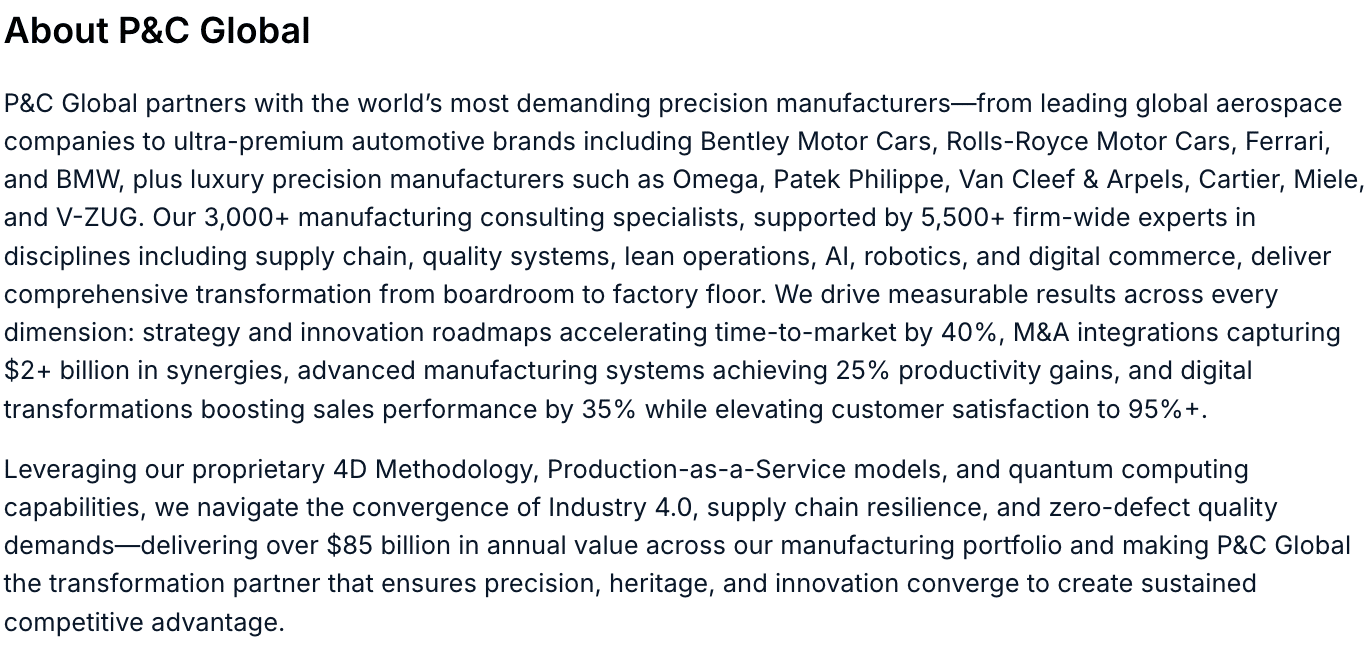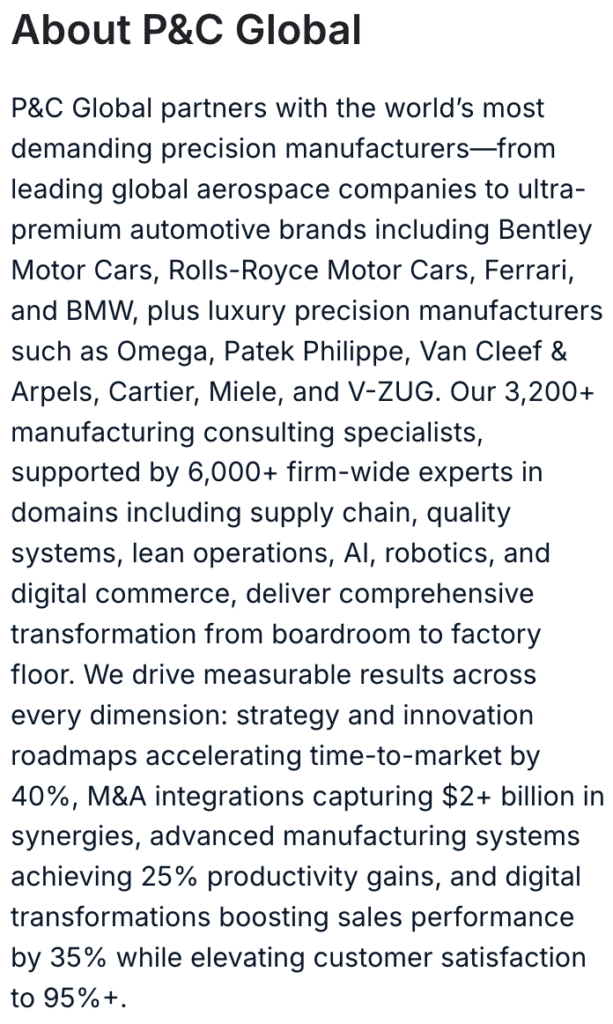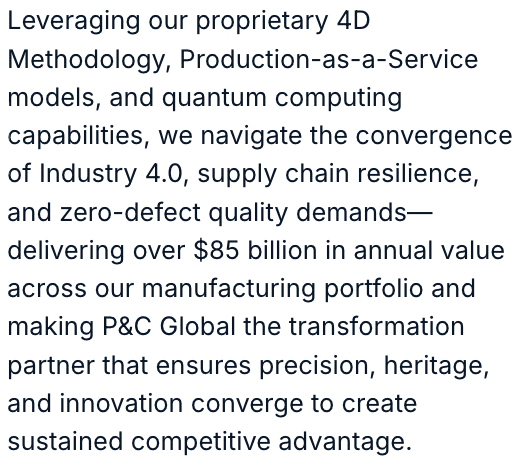


Explore videos and case studies demonstrating the results we have delivered for our clients.
Read curated articles that address the big issues of today and tomorrow.
Learn about P&C’s global footprint and how we engage with clients.
For over a century, the world’s most revered automotive marques have defined excellence through craftsmanship, heritage, and engineering. But in today’s increasingly saturated luxury market, elite automakers are no longer merely manufacturing vehicles—they’re building worlds. From branded residential towers in global capitals to curated home collections and lifestyle collaborations, ultra-luxury automaker brands are moving beyond mobility to create immersive lifestyle ecosystems. This evolution reflects a broader luxury brand strategy—one designed to turn admiration into emotional affiliation through multisensory environments and global cultural relevance. In doing so, they are not just extending their brand—they are future-proofing it.
This evolution reflects a strategic shift in how luxury is experienced. As high-net-worth individuals increasingly prioritize meaningful experiences and alignment with personal values over ownership alone, automakers are reimagining how their brands appear across the customer journey—not just in the garage, but in the home, in the community, and throughout daily life. The goal? To expand share of wallet, deepen emotional connection, and convert admiration into lasting affiliation.
Luxury vehicles have long served as symbols of status and identity, but their value proposition—performance, prestige, and design—now represents just one entry point into a broader lifestyle narrative. Today’s ultra-luxury consumers no longer aspire to own objects alone; they seek experiences, environments, and affiliations that reflect their values—a shift brands must address through innovative growth strategies for luxury travel and hospitality, as well as other experience-driven sectors to amplify their identity in subtle, elevated ways.
Branded residences are at the forefront of this transformation. In cities like Miami, Dubai, and Shanghai, ultra-luxury real estate towers increasingly feature branding from renowned automotive and fashion houses, offering premium, name-backed experiences aligned with lifestyle expectations.
Meanwhile, curated home collections—furniture, lighting, and accessories inspired by automotive design—enable brands to extend their narrative into everyday life. In one engagement led by P&C Global, an iconic ultra-luxury automotive marque launched a line of bespoke home furnishings, incorporating signature design cues such as quilted leather, carbon fiber inlays, and heritage-inspired stitching. The collection was positioned not just as décor, but as a seamless extension of the brand’s identity—bringing automotive artistry into the heart of the home. The vehicle is no longer the product; it’s the gateway to a fully immersive lifestyle.
Three converging dynamics are accelerating this strategic expansion:
This lifestyle evolution offers a host of competitive advantages for ultra-luxury marques:
Consider the rise of branded residential towers by iconic automakers in urban luxury hubs. These developments are more than architectural statements—they are full expressions of brand identity and lifestyle aspiration, and part of a growing category of automotive branded real estate.
In one engagement led by P&C Global, a globally revered automotive marque partnered with top-tier developers, architects, and design studios to create a 60-story oceanfront branded residence in Miami, with a jewel-like glass façade reflecting the brand’s design heritage. Every detail was curated: from the façade and lobby to bespoke scent, signature furnishings, and concierge protocols. This cohesive orchestration reflects a commitment to brand experience design, where every sensory and service element reinforces brand storytelling.
The residence featured a unique private car elevator, allowing residents to drive directly into their homes, and private sky garages accommodating up to four vehicles—complete with EV charging stations. Lifestyle amenities were designed to mirror the client’s passions and values, including a whiskey and cigar lounge, private cinema, golf and racing simulators, pet spa, and resort-caliber wellness offerings such as saunas, plunge pools, and outdoor showers. A lobby museum showcased collector and concept cars, further reinforcing the marque’s heritage and emotional resonance.
This is not an anomaly. It’s a harbinger of what’s next.
While the opportunity is vast, success requires more than prestige. It demands strategic precision, long-term vision, and operational fluency across sectors—especially in luxury real estate strategy and innovation, where lifestyle branding and asset performance must align seamlessly:
In today’s luxury landscape, products alone are not enough. Loyalty is earned by how a brand lives across the customer’s world—with enduring impact seen in luxury customer experience strategies for hospitality and travel designed for experiential excellence. Ultra-luxury automakers who recognize this aren’t simply selling more vehicles—they’re cultivating immersive worlds in which clients want to live.
By expanding their presence from vehicles to villas, these brands are achieving what few others can: transforming admiration into belonging—and turning loyalty into lifestyle.


